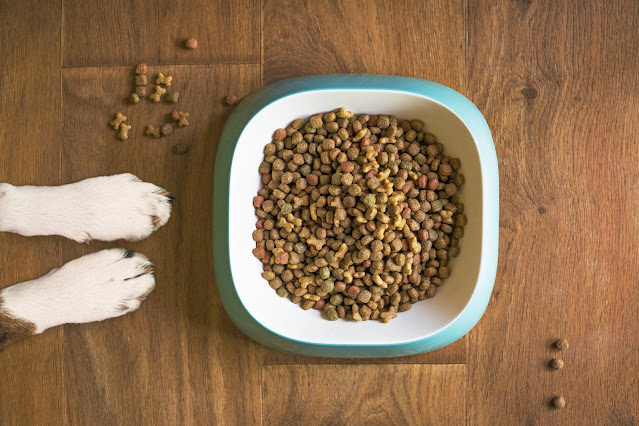Whether you purchase your canine food or make it yourself, your canine necessitates a fair eating regimen to remain sound. That incorporates a blend of:
- Proteins
- Sugars
- Fats
- Nutrients
- Minerals
- Water
To ensure the canine food you purchase has the right blend of supplements, search for the words "complete and adjusted sustenance" on the name.
You could likewise see "Meets the dietary necessities of canines laid out by the American Association of Feed Control Officials (AAFCO)" or "Complete and adjusted sustenance for canines in view of AAFCO taking care of preliminaries."
Both dry and canned canine food will give your canine great nourishment. A few specialists favor dry food since it might assist with keeping teeth and gums sound.
Assuming that you make your own canine food, use recipes made by nutritionists to be "finished and adjusted."
Fundamental Nutrients
Proteins: Body tissues are made of proteins. Your canine's body makes just 13 of the 23 amino acids that are the structure blocks of proteins. The other 10 need to come from food.
Fats: Fats give your canine energy. They likewise assist with keeping your canine's skin and hair sound. A few significant unsaturated fats for your canine are:
- Linoleic corrosive
- Omega-6
- Omega-3
Your canine's body can't make an adequate number of fundamental unsaturated fats all alone, so they need to eat food that has them.
Sugars: Carbs come from plants. At the point when your canine eats grains and vegetables, they get:
- Sugars
- Starches
- Fiber
Carbs power the tissues in your canine's body. They likewise assist with keeping your canine's digestive organs sound.
Nutrients and minerals: These are required for the majority of the synthetic responses in your canine's body, for example, building bones and keeping areas of strength for them.
Your canine can get every one of the nutrients and minerals they needs in "adjusted" canine food, including:
- Vitamin A
- Vitamin D
- Vitamin E
- Vitamin K
- B-complex nutrients
- Calcium
- Phosphorus
Canines don't have to have L-ascorbic acid in their food on the grounds that their bodies make it.
At the point when they eat nutritious food, your canine needn't bother with nutrient or mineral enhancements. Giving your canine enhancements can be risky, truth be told.
Water: Even on the off chance that canines lose all of their muscle versus fat and a portion of their protein, they can get by. Yet, water is critical to the point that they could bite the dust assuming they lose just 10% of the water in their body. Water makes up the greater part of a grown-up canine's body weight.
Albeit canned canine food might have a ton of water in it, it's insufficient for your canine. Ensure your canine generally has new, clean water accessible.
Feed on a Schedule
Generally, grown-up canines ought to be taken care of more than once per day. Most enormous varieties of canines ought to be taken care of no less than two times per day so they don't indulge and get swollen.
Specialists concur that treats and table pieces ought to never be over 10% of your canine's day to day calories. Very much like with individuals, gorging can make your canine overweight. What's more, that can prompt the very sorts of medical conditions that individuals have, like diabetes and coronary illness.
Your veterinarian can assist you with sorting out the best eating routine and taking care of timetables to keep your canine sound.
















No comments:
Post a Comment